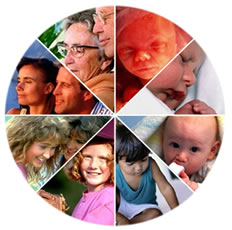An article from The New Paper brings angry doc back to the topic of means testing.
As he has mentioned many times, angry doc is not a fan of means testing in its current proposed form, but here it is not so much the idea of means testing that troubles him as much as the poor arguments for means testing presented by the journalist here. angry doc will interspace his comments (in blue).
Monthly salary $9,300 Hospital ward C CLASS
S'pore's top earners make up 1 in 10 patients in subsidised wards. Time to start means testing?
By Leong Ching
WOULD you give public assistance to the boss of a multinational corporation?
Free meals to a lawyer living in a District 10 bungalow?
Subsidise the Lexus of a coffeeshop towkay?
No?
Then why would you be against means testing? It is just a way of making sure that anyone who needs a subsidised bed will get one.
Wrong, because means testing in its current proposed form will not make sure that anyone who needs a subsidised bed will get one. A rich man can still stay in a C-class ward even if he fails means testing, provided he is willing to accept the fact that he will receive less subsidy than someone who has passed the means test.
And wrong also because means testing does not test "need"; it tests "means". A poor man who passes means testing can still stay in a C-class ward and enjoy the full subsidy even if there is no compelling medical reason for him to be there.
So between a rich man who needs a bed and a poor man who does not need a bed, who is denying the poor man who needs a bed his bed?
Without means testing, some of the rich, and even the very rich, are enjoying government subsidies by choosing to stay in lower-class wards.
Yesterday in Parliament, two vital pieces of information emerged about health care here. First, we are short of hospital beds. Second, we are throwing government subsidies at certain well-off people.
The two issues are actually not directly related: a rich man who needs to be admitted will take up one bed regardless of how much subsidy we give him, just as the poor man. The amount of subsidy a man receives has no direct impact on the total number of beds in the system.
Said Health Minister Khaw Boon Wan: 'Our current bed situation is tight, particularly in the Tan Tock Seng Hospital as it is the only hospital serving the large population in the north besides its own catchment area.
'The over-crowding in TTSH in turn causes spill-over to the other hospitals, especially National University Hospital and Changi General Hospital.'
There will be relief, he noted, when the new general hospital in Yishun opens in three years' time. There is also another general hospital in the west being planned.
Each year, Singapore will need another 60 to 100 new beds - many in subsidised wards.
Beds in B2 and C Classes are heavily subsidised, the latter to the tune of 80 per cent.
How do we make sure that these wards go only to those who need them?
Another way of saying it - how can we make sure that those who can afford it, do go to the less-subsidised wards?
The policy objective is the same - but the political nuance is vastly different.
Nuances indeed. Here the writer continues to make the error of equating ability to pay with (non-)need, and that the bed situation is a result of "those who can afford it" taking up the beds of "those who need them".
The second way of saying it leaves it open to those who want to score political points.
'Sure, I can afford to go to a better class, but I don't want to,' they say. 'And you are wrong to make me.
'I may get a higher pay, but I want to spend less on health care.
'And if the next guy doesn't pay taxes and I do, I would be even more entitled to a C Class bed.'
These arguments are very appealing to the sandwiched middle class, who may be struggling to raise kids, care for ageing parents and find hospital bills an onerous expense.
This by itself does not contradict the principle that the rich should not get handouts. It merely tells us that we ought to be careful whom we call 'rich'.
For example, a family may earn $5,000 from two incomes, but they might deserve some subsidies if there are three little children and four old folks to take care of.
The devil is in the details. And here are more details to light the way.
The Ministry of Health yesterday released numbers to show the profile of the people who used CClass wards in 2004.
They were startling - they showed that 9 per cent of C-Class patients were from households whose earnings were in the top 20 per cent.
That is to say, nearly one in 10 patients who used C-Class wards came from a household earning close to $10,000 a month.
One-third of all C-Class patients were from the bottom 20 per cent of households.
Ironically, these statistics suggest to angry doc that we have too many C-class beds, not too few. Otherwise, why are only one-third of the beds occupied by the poor people?
According to the Department of Statistics, the top 20 per cent of households earned $9,300 a month, whereas the bottom 20 per cent earned $1,180.
So, in the democratic environment of a C-Class ward, a man who earns $9,300 a month enjoys the same handouts from the Government as the one who earns $1,180.
Is this fair?
Another quarter of C-Class patients come from the lowest 20th to the 40th percentile.
So, by and large, more poorer Singaporeans are using the most highly-subsidised ward.
But why are rich Singaporeans there as well, and in numbers as high as 9 per cent?
ALLOTMENT VS RIGHT
Some may argue that they are there because they are as frugal as the next guy. Why deny them the right?
Well, because a government subsidy isn't a right - it is an allotment, in the same way that public assistance and food rations are.
One MP asked Mr Khaw yesterday whether he was going to implement means-testing.
He replied that it was 'at the back of my mind' but that he had many other issues to deal with - including the reform of Medishield and Eldershield.
'I will come to it,' he said.
One reason for the long percolation could be the political price. After all, the $9,300-a-month man would not take kindly to his low-priced hospital stay being taken away from him.
Except the "$9,300-a-month man" may end up with a $300,000 bill, which even at 65% subsidy (but before Medisave) will take "$9,300-a-month man" a full year's income to pay off. Hardly "low-priced", is it?
Madam Halimah Yacob, who chairs the Government Parliamentary Committee on Health, had warned that an extensive public debate was needed 'so that people are adequately prepared and are not caught by surprise by the change in policy'.
Last month, the Health Ministry said there would be some kind of means testing within a year.
I would say - let's start now, and start with the $9,300 man first, followed by the $5,000 man.
angry doc would say: start with looking at more aspects of the issue first, followed by getting your logic right, then start thinking about whether we should even implement means testing in its current proposed form.
Labels: in the news, means testing




















